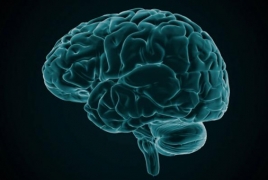
A team of psychologists has found strong associations between working memory — a fundamental building block of a functioning mind — and three health-related factors: sleep, age, and depressed mood. The team also reports that each of these factors is associated with different aspects of working memory, reports Infosurhoy.
Working memory is the part of short-term memory that temporarily stores and manages information required for cognitive tasks such as learning, reasoning, and comprehension. Working memory is critically involved in many higher cognitive functions, including intelligence, creative problem-solving, language, and action-planning. It plays a major role in how we process, use, and remember information.
The researchers, led by Weiwei Zhang, an assistant professor of psychology at the University of California, Riverside, found that age is negatively related to the “qualitative” aspect of working memory–that is, how strong or how accurate the memory is. In other words, the older the person, the weaker and less precise the person’s memory. In contrast, poor sleep quality and depressed mood are linked to a reduced likelihood of remembering a previously experienced event — the “quantitative” aspect of working memory.
“Other researchers have already linked each of these factors separately to overall working memory function, but our work looked at how these factors are associated with memory quality and quantity – the first time this has been done,” Zhang said. “All three factors are interrelated. For example, seniors are more likely to experience negative mood than younger adults. Poor sleep quality is also often associated with depressed mood. The piecemeal approach used in previous investigations on these relationships — examining the relationship between one of these health-related factors and working memory — could open up the possibility that an observed effect may be influenced by other factors.”
The researchers are the first to statistically isolate the effects of the three factors on working memory quantity and quality. Although all three factors contribute to a common complaint about foggy memory, they seem to behave in different ways and may result from potentially independent mechanisms in the brain. These findings could lead to future interventions and treatments to counteract the negative impacts of these factors on working memory.
Research results appear in the Journal of the International Neuropsychological Society.

